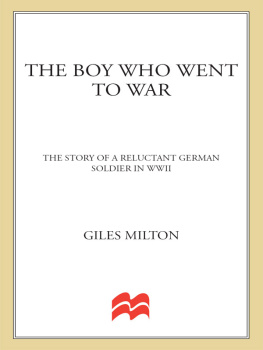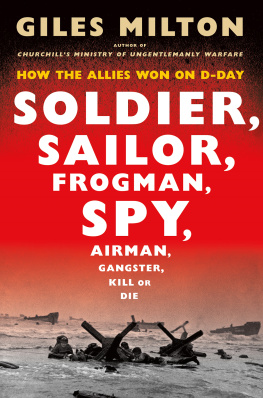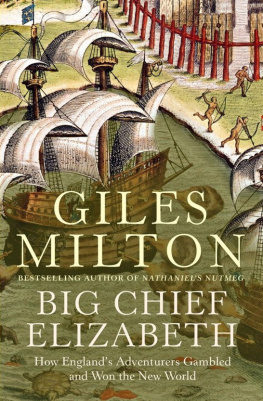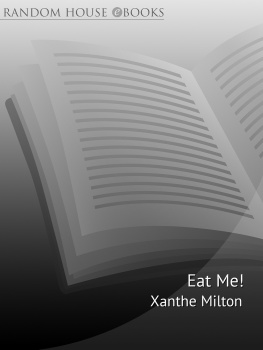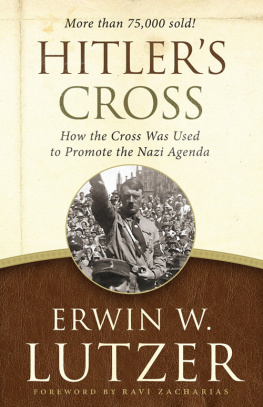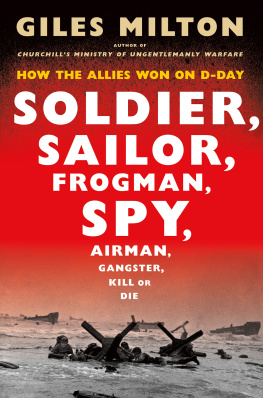Milton - The boy who went to war : the story of a reluctant german soldier in wwii
Here you can read online Milton - The boy who went to war : the story of a reluctant german soldier in wwii full text of the book (entire story) in english for free. Download pdf and epub, get meaning, cover and reviews about this ebook. City: New York, year: 2013, publisher: St. Martins Press, genre: Non-fiction. Description of the work, (preface) as well as reviews are available. Best literature library LitArk.com created for fans of good reading and offers a wide selection of genres:
Romance novel
Science fiction
Adventure
Detective
Science
History
Home and family
Prose
Art
Politics
Computer
Non-fiction
Religion
Business
Children
Humor
Choose a favorite category and find really read worthwhile books. Enjoy immersion in the world of imagination, feel the emotions of the characters or learn something new for yourself, make an fascinating discovery.
- Book:The boy who went to war : the story of a reluctant german soldier in wwii
- Author:
- Publisher:St. Martins Press
- Genre:
- Year:2013
- City:New York
- Rating:4 / 5
- Favourites:Add to favourites
- Your mark:
The boy who went to war : the story of a reluctant german soldier in wwii: summary, description and annotation
We offer to read an annotation, description, summary or preface (depends on what the author of the book "The boy who went to war : the story of a reluctant german soldier in wwii" wrote himself). If you haven't found the necessary information about the book — write in the comments, we will try to find it.
Abstract: A powerful and true story of warfare and human survival that exposes a side of World War II that is unknown by many this is the story of Wolfram AIchele, a boy whose childhood was stolen by a war in which he had no choice but to fight. Giles Milton has been a writer and historian for many years, writing about people and places that history has forgotten. But it took his young daughters depiction of a swastika on an imaginary family shield - the swastika representing Germany - for Giles to uncover the incredible, dark story of his own family and his father-in-laws life under Hitlers regime. As German citizens during World War II, Wolfram and his Bohemian, artist parents survived one of the most brutal eras of history. Wolfram, who was only nine years old when Hitler came to power, lived through the rise and fall of the Third Reich, from the earliest street marches to the final defeat of the Nazi regime. Conscripted into Hitlers army, he witnessed the brutality of war - first on the Russian front and then on the Normandy beaches. Seen through German eyes and written with remarkable sensitivity, The Boy Who Went to War is a powerful story of warfare and human survival and a reminder to us all that civilians on both sides suffered the consequences of Hitlers war
Milton: author's other books
Who wrote The boy who went to war : the story of a reluctant german soldier in wwii? Find out the surname, the name of the author of the book and a list of all author's works by series.

